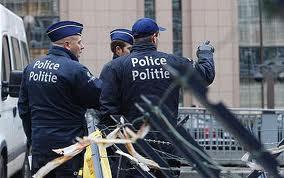Austerity Cuts Challenge European Police Facing Terror Threat
إقرأ هذا الخبر بالعربية
Europe is facing the specter of attacks by Islamic State (IS) jihadists with police numbers in some countries hit by austerity cuts, raising questions about whether this is making it easier for assailants to slip through the net.
Following this month's Paris attacks in which 130 people died, other EU nations are on high alert.
But the tragedy has also fueled debate about whether, in the rush to shrink deficits bloated by the 2008 financial crisis, some nations are laying off too many officers and lowering their guard.
A raft of extra jobs and funding in counter-terrorism and intelligence have been announced across Europe since the November 13 carnage in France's capital.
"In reaction to Paris, you'll probably see more and more will be put into security services and there will be a reversal of the trends," said Professor Christian Kaunert of Dundee University, director of the European Institute for Security and Justice.
"There's a massive realization that has hit politicians because of the threat they are confronting with Daesh," he added, using a different acronym for IS.
But many of the questions come around frontline policing rather than specific counter-terrorism units.
Robert Quick, Scotland Yard's former head of counter-terrorism, told Britain's Guardian newspaper that police cuts would lead to "a loss of intelligence, a loss of confidence and trust" and leave countries "more vulnerable to terrorism."
British finance minister George Osborne was widely expected to reduce police numbers during his autumn budget statement on Wednesday, but bowed to pressure and promised no cuts for forces across England and Wales, bucking a Europe-wide trend.
- Police on the beat -
In France, which currently has nearly 250,000 police and gendarmes, 13,000 were cut under the previous government between 2007 and 2012.
President Francois Hollande has since announced thousands of new security jobs, including 5,000 new police and gendarmes following the Paris attacks.
In Belgium, where the capital Brussels is on the highest security threat level as police hunt Belgian-born Paris suspect Salah Abdeslam, the government dropped plans to make a four percent saving on numbers after a jihadist cell was broken up in January.
Police in the Brussels suburb of Molenbeek, seen as a breeding ground for Islamist extremism and once home to Abdeslam, say they are short of 125 officers.
"In terms of radicalism, local police are responsible for gathering information on the ground since we are best placed for that," Johan De Becker, chief of the Brussels West police zone, told RTBF television last week.
There have also been policing cuts in countries like Italy and Spain, where 191 people were killed in the Madrid train bombings in 2004.
The number of police in the number of police in England and Wales has fallen nearly 12 percent since 2010.
On Wednesday, finance minister Osborne revealed that counter-terrorism funding would rise by 30 percent, an announcement that followed a decision Monday to recruit an extra 1,900 security and intelligence staff.
- 'Most expensive tactic' -
No one disputes that trying to prevent major attacks is a costly business.
Jon Moran of Leicester University, a specialist in security studies, said using surveillance to track Islamists suspected of plotting attacks is "the most expensive tactic used by the police".
"Cuts to the police and security services in France and Belgium and the Netherlands may have had an effect on the ability of these services to conduct surveillance on the range of individuals and groups they have identified as targets," he added.
"Whether it's surveillance on foot, by car or by technical devices, it costs a lot of time and money in equipment and overtime."
At a time when the numbers of suspects under observation by the authorities is rising as radicalized Europeans return from fighting in IS ranks and jihadists spread propaganda on social media, differentiating credible threats from less serious ones can also suck up resources.
Some of what gets investigated will be "a bunch of schoolkids" saying: 'What if we shot down an airliner at Heathrow?' with no hope of ever pulling it off," according to Paul Swallow of Canterbury Christ Church University, an ex-Scotland Yard counter-terrorism intelligence officer.
As for knowing whether a specific attack could have been prevented had more resources been available, experts say that is virtually impossible to answer.
"If a country conducts a foreign and security policy which puts it in the front line of the struggle against jihadism then terrorists are bound to target it, however well funded the security and police services are," Moran said.



